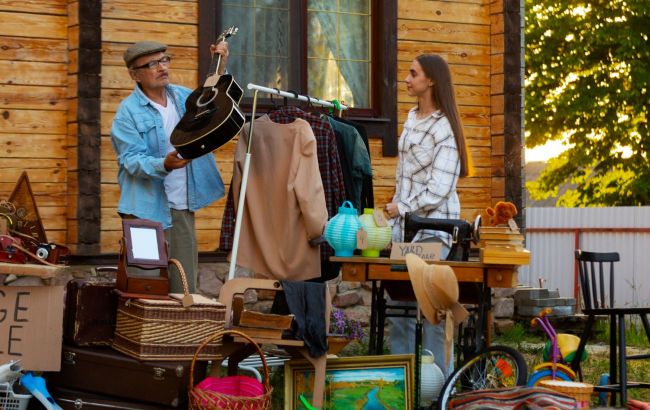9 things you shouldn't store in your garage
 What things shouldn't be stored in the garage (illustrative photo: Freepik)
What things shouldn't be stored in the garage (illustrative photo: Freepik)
Having a garage is great for storage, as it provides a significant amount of additional space. However, as tempting as it may be to forget about what’s stored in the garage, some items can easily turn the space into a neglected warehouse or junkyard, according to Southern Living.
Tools from past hobbies
Sometimes hobbies, such as woodworking or tennis, may fade over time.
If this happens, it's better not to accumulate items you don't intend to use; instead, try selling the tools, even if parting with them is hard. Otherwise, once valuable items will gather dust.
Old or broken household items
It's time to get rid of furniture or other household items you purchased with a renovation plan but never used. Or, conversely, broken chairs that no one ever repaired.
Ask yourself how likely you are to complete this task, especially if you have already bought new ones.
Excess shovels
You can hardly use more than one shovel at a time. Perhaps someone will help you in the garden or with snow removal. Keep what you will use, and dispose of the rest.
Outdated electronics
Technology is constantly changing, and if you have a pile of outdated electronics in the garage, Amanda Bernal from Piece Home Services urges you to let go of these items.
This includes VCRs, DVD players, laptops, etc. Of course, you should first transfer personal information to a current device.
Clothing and footwear
The garage should never become an extension of your closet. Clothing and footwear stored there are prone to mold or damage.
If they continue to take up space in the garage, it’s time to find a new home for these items.
You can certainly keep memorabilia, such as soccer shoes or a baby's first blanket, but you should not store unnecessary items.
Food and beverages
The garage should also not become a giant pantry. The ideal place to store food and beverage supplies is in a climate-controlled area.
While most canned goods can withstand high temperatures for a short time, temperature changes can affect their quality.
Paper documents
You should never risk losing important documents due to environmental factors such as moisture, heat, and pests.
Instead, keep important documents in a secure, climate-controlled location. All outdated papers should be shredded or discarded.
Old paint
If you don't plan to use half-empty paint cans soon, don't keep them in the garage.
If you think you need to keep spare paint on hand, it's better to set aside the paint you need now, photograph the labels, and create a folder on your device or paper to remember the color you need.
Construction materials after renovation
Whether previous owners left their junk or you recently replaced fixtures and switch covers, you probably won't need these old parts.
Leftover construction materials can also end up in the garage, such as tiles, wood, flooring, cement, etc. Free up space in the garage by moving items to the attic or another storage location, or find a new owner for them.


